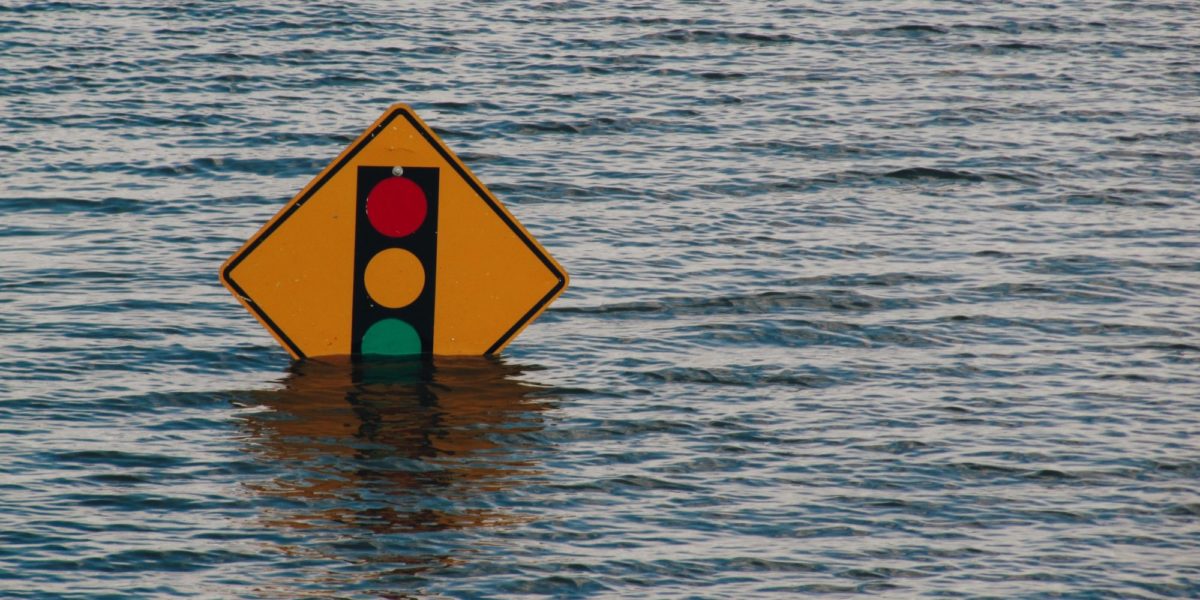Sometimes there’s too much water; sometimes not enough. A major challenge with global heating is that it doesn’t necessarily cause more or less of something in a specific geographic area (hotter, colder; wetter, dryer); it just makes everything less predictable and often more extreme.
Consider some late-summer headlines. Pakistan “faces ‘monsoon on steroids’ as more flood warnings issued.” In Spain, “Historic monuments resurface as severe drought shrinks reservoirs.” Melting Greenland ice is “set to raise sea levels by nearly a foot.” In Jackson, Mississippi, the “water system is failing, city will be with no or little drinking water indefinitely.” Also in the U.S., “As Colorado River dries, the U.S. teeters on the brink of larger water crisis.”
In rainy Vancouver where I live, overall precipitation is expected to increase by a small amount, but more intense rain is expected in shorter periods, especially during fall and winter.
Water scarcity — as well as contamination — is a looming issue. As glaciers recede on a heating planet, less water will make it to rivers, lakes and reservoirs. Many areas get hit with torrential rains after prolonged drought, which causes problems from runoff to crop and tree destruction.
This planet has evolved complex, interconnected cycles that together make human and other life possible — among them, the carbon, hydrologic (i.e., water), nitrogen and oxygen cycles. Burning coal, oil and gas — and disrupting or destroying natural carbon sinks like forests and wetlands — has affected the carbon cycle, heating the climate and changing the ways water flows in, on and around the world.
Impacts are evident everywhere: dams retooled as river and reservoir levels drop, entire countries almost submerged in rising floodwaters, cities without water, crops and livestock wiped out…
Yet, many continue to take water for granted, especially in the U.S. and Canada. And governments everywhere allow multinational corporations to suck up, bottle and sell it back to us as drinking water or sugary beverages. With so much development — urban, agricultural and industrial — people have created conditions for runoff, flooding and water waste. Agriculture, power from hydro, nuclear and fossil fuels, activities like fracking for gas, and producing consumer goods all use enormous amounts of water.
Again, we have many solutions. We can build bigger seawalls or start the process of “managed retreat” from coastlines. We can implement flood measures using natural features to capture, channel, store and drain water. We can engineer “drought-resistant” crops. We can shift to agricultural methods that hold water and soil together better. We can re-imagine plumbing systems to stop wasting potable water and to recycle valuable nutrients like nitrogen in urine.
We must do all these things. But until we tackle the root cause of all these interconnected, often complex changes, we’ll see them become increasingly more frequent and severe.
We absolutely must ramp up efforts to slow and halt the climate crisis, which is bringing many interrelated tragedies in its wake, from species extinction to refugee crises to various water issues.
Because the crises are connected, so too are the solutions. Shifting to renewable energy will not only lower carbon emissions, it will also reduce water use. A Food & Water Watch study found that by shifting to renewables, the U.S. could save 99 per cent of the water currently used in fossil fuel electricity generation and “virtually eliminate water withdrawals for electricity generation.”
A recent study by global engineering and architecture services firm GHD found that the price of failing to address related climate and water issues could be staggering. “Aquanomics” predicts floods, droughts and storms could cost Canada’s economy $139 billion over the next 30 years, with mounting damage to power, manufacturing and transportation infrastructure.
As the report title suggests, it’s all about water. “Either we have too much water or not enough,” the company’s water lead, Don Holland, told CBC. “But really, when we talk about climate change, we experience it through water.”
We’re each about 60 per cent water. Water is life. We can’t live without it. If we want to avoid worsening conflicts over this increasingly scarce necessity — and problems associated with its distribution, from floods to droughts — we must get off fossil fuels, reform agricultural practices and protect and restore natural areas.
David Suzuki is a scientist, broadcaster, author and co-founder of the David Suzuki Foundation. Written with contributions from David Suzuki Foundation Senior Writer and Editor Ian Hanington. Learn more at davidsuzuki.org.



